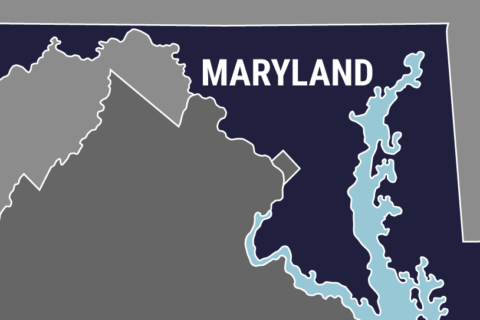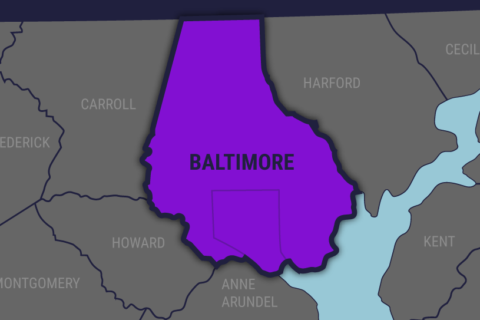WASHINGTON — For the first time in more than two months, University of Maryland football coach DJ Durkin was back on the practice field Tuesday, following the university’s board of regents recommendation that he return to coaching after an investigation into a player’s death over the summer.
The board’s recent report said it found no evidence of a “toxic” culture within the football program and that the coach was being unfairly blamed.
Even after 19-year-old Jordan McNair died on a practice field earlier this year, Durkin retains substantial support among current members of the squad.
But a number of players have hinted via social media, Durkin’s support is not universal.
Still, players who disagree with Durkin’s return to coaching can’t do much about it, a sports law expert told WTOP.
“It’s amazing to think that the players on the team are not with their coach,” said Marc Edelman, a law professor at Baruch College, who is an expert in sports law. “This just goes to show you how egregious DJ Durkin’s behavior is.”
Edelman said there isn’t much college athletes can say or do when they find themselves in such a situation. One option would be to wait until the end of the season and transfer, though that comes with a long list of terms and conditions meant to discourage players from switching schools.
The simplest, but also most extreme step they can take would be to refuse to play for Durkin. Edelman said the players could also try to organize a union — a step unsuccessfully taken by another team in the Big Ten not so long ago.
Players on the Northwestern University football team applied for union protections in 2015. Ultimately the players were unsuccessful. But while much of the debate in the public sphere centered on the possibility that it could lead to players getting paid, Edelman said that wasn’t the main argument advanced by the players seeking a union.
“The reality is the efforts by the Northwestern University football players was less about wages and more about working conditions,” said Edelman. “If you look at DJ Durkin’s conduct and imagine it happening in the NFL, there is no way that coach would have a locker room. There is no way that players would play for that coach again. Just imagine if this same exact course of events happened with the Baltimore Ravens,: There is no way that management would so much as even have an opportunity, realistically, to put that coach back on the sideline.”
In fact, while college football players keep dying on practice fields and during workouts, it hasn’t happened in the NFL since 2001, when Korey Stringer died during a preseason practice. With the reforms and changes that have occurred in the NFL since then, Edelman said that’s no coincidence.
For one thing, the union in the NFL is able to bargain over how practices are conducted in a way “that keeps the players safer,” Edelman said. “Second, because the players earn real salaries, they’re treated with dignity. They’re more likely to speak up. The culture in college sports gives these dictator-like coaches almost complete control of the athletes, silencing their voices even when their voices need to be heard.”
Edelman said he thinks NFL leadership would intervene if a similar situation happened in the league. NCAA president Mark Emrick and Big Ten Commissioner Jim Delany, so far, have not.
“They are so much more concerned with maximizing revenues of college sports, maximizing their own money and maximizing salaries of coaches, that they have ignored the fundamental function of the NCAA from the time of its creation in 1906: That being to protect the athletes health and well-being, and to prevent them from exploitation,” Edelman said.
The NCAA does list student-athlete well-being among its 16 principles for conduct of intercollegiate athletics. In particular, the NCAA says schools are responsible for providing a healthy and safe environment for students and a positive relationship between athletes and coaches.
A Big Ten coaches code of conduct could not be found online, nor is there an easily available outline of expectations among coaches at the University of Maryland.
But Edelman said had McNair died in a classroom, the professor responsible for creating that atmosphere where that could occur would never be allowed back in a classroom again.








